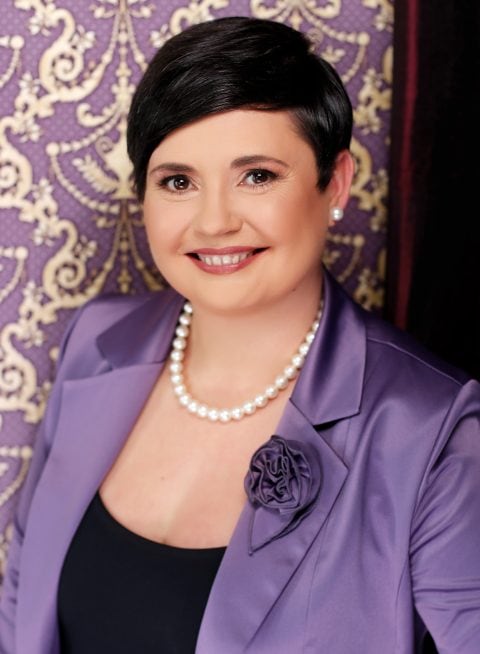The Context
“I’m 1m50 and I weight about 50 kg provided that the clothes I wear are wet. Can you imagine how they look at me when I go on the stage to convince them to buy our digital solutions?”
You lucky duck, I was thinking as I was listening to Neera. Even on camera she came across as petite. As a woman struggling with my oscillating weight my entire life, I would have never thought that a stable weight of 50 kg in a woman could be a problem. But to Neera, the newly appointed CEO of a global digital solutions provider in the Middle East, this was a real pain point.
What’s more – the country she was supposed to lead was also her country of origin where she returned after 12 years in Prague, Czechia. As we saw in the case study Is Arriving Harder than Leaving?, returning to our countries of origin as the new CEO can be a mighty challenge in itself.
“12 years in Prague and I never felt unsafe. I always felt seen and respected. Sure, I had to work very hard for everything I have ever gotten. But I never felt that, if I stepped on the stage, they would be ready to throw a rock at me.”
The First Step
“So, what do you actually need?” I asked her.
“I want to feel safe. I know that both my company and I have a lot to give to this country. But to do that I need to be listened to, not questioned at every step because of my height and weight.”
“Was there ever a time when you felt safe in your country of origin?”
“Yes, totally. It was during my university studies. We were few women, same like in my industry today. But our professors were open-minded. It also helped that being small and slim was no problem when you are 18, but that’s a different story. My mentor was also a woman, so that helped, too,” Neera told me.
We continued investigating her relation to psychological safety. We looked at what gave her psychological safety in Prague, and at the situations when she felt threatened. Often I turned the mirror back at her and invited her to reflect back what she heard herself saying. Her main assignment during this first phase was to watch the recordings of our sessions and to continue in her self-reflection.
The Second Step
With the main events and sales season approach, we also knew we don’t have endless time to spend on reflecting on psychological safety. So, we went back to Neera’s stakeholder map and to her event calendar.
We looked at the different stakeholder categories one by one; we even dove into the client category one by one, to assess them in terms of psychological safety.
Then we looked at events. Where was Neera supposed to speak in-person and virtually within the next six months? We reviewed her type of interventions – keynote speech, panel discussion, Q&A – and her key messages. We took a careful look at the context of her public speaking – virtual or in-person. We assessed her wardrobe, accessories, make-up, and body posture. We even did a few delivery simulations to spot inconsistencies.
“You know, it’s easier when we do them in English. In my mother tongue I tend to speak much faster and my voice gets a high pitch, as if I were shouting at them.”
So we simulated a delivery in her mother tongue. I didn’t understand a word, but my job was not understanding her; it was watching her body language and tone of voice. We recorded everything and we continued in the reflection of what she could improve to feel better in her own skin.
The Breakthrough
As you can imagine, this level of preparation was not bad, but it wasn’t enough.
“What else would help you to feel even safer when you go in front of them on the stage,” I asked her.
“It would help me if I were not alone. If I could have a partner – someone from my executive team or someone whom they respect already to speak together in tandem.”
We could try that, but the risk was in her falling back and becoming even more invisible on the side of a speaking partner who would tower over her.
“Honestly, what would really help me was a change in attitude in the men in our country. Women are brilliant, they work hard and study hard. No one should feel that they could lose their life just for stepping on a stage in front of men,” she said.
“So, how about making this your mission beyond your CEO mandate – empowering women in your country to speak up?” I told her. “You could start at the university level, where you need to go to recruit young talent anyway. You could have your talks recorded and you could start giving more interviews on this topic.”
Little by little, Neera started to relax. The cherry on the pie was when we chose a song that should play whenever she entered a stage to speak. For her, it would be the audio signal that reminded her of her own power to change things for the better.
“It’s not easy. But now I know where this is coming from and that I can do something about it – for myself and at scale. And that makes me more confident in my success,” she said.
The Resolution
Neera is not the only woman CEO appointed to lead in a culture that still has mile leaps to treat women as equals. The real risk, however, was not her culture; it was allowing her fear and lack of psychological safety to push her into the background.
Instead, Neera chose to become a challenger and a driver of positive change. Today, several years after her appointment, she continues to challenge her clients’ businesses with new digital solutions, and her country’s attitude to women. As it appears, we are never too small to drive real change in our business and social ecosystems.



